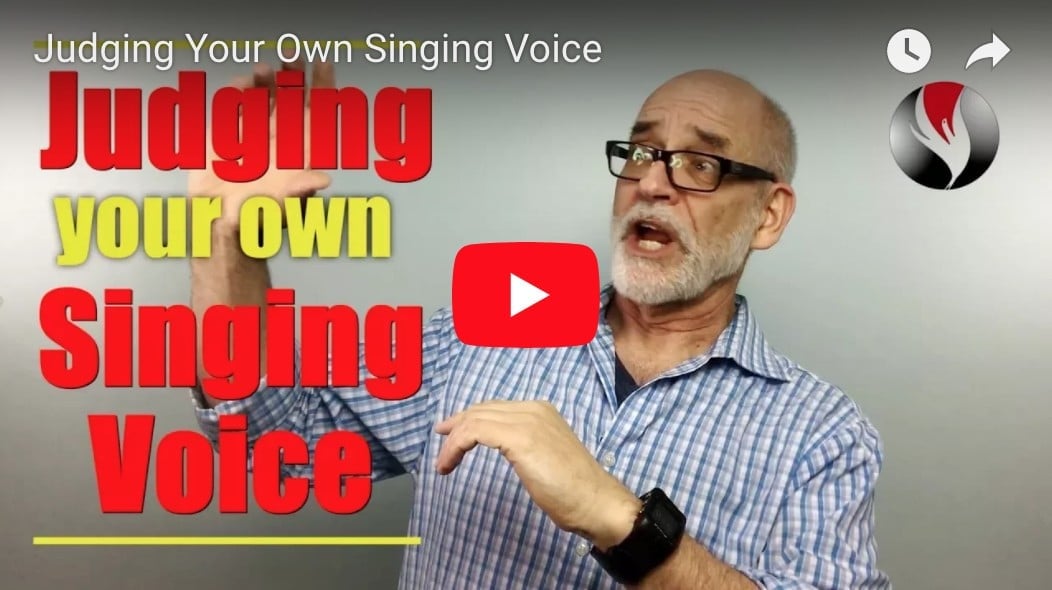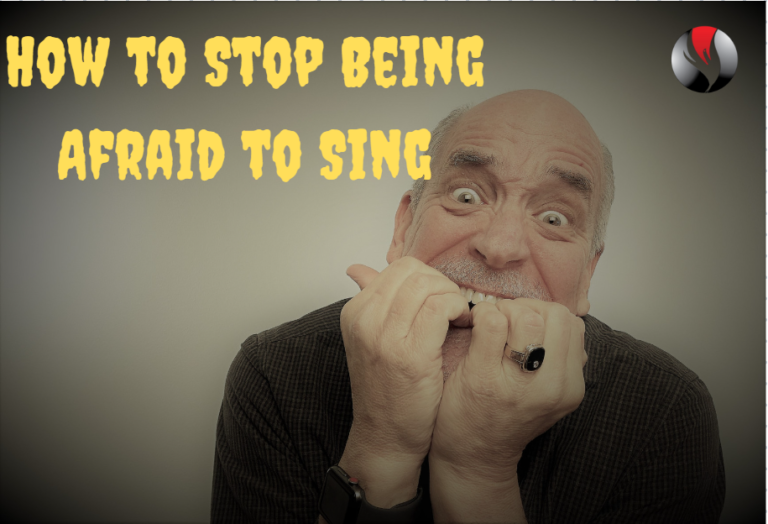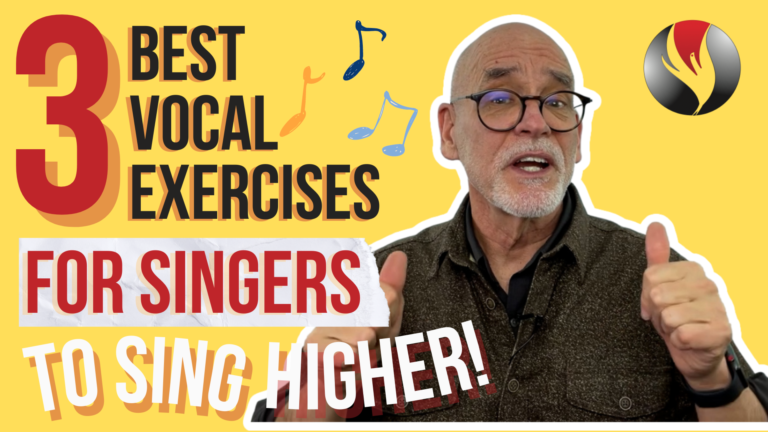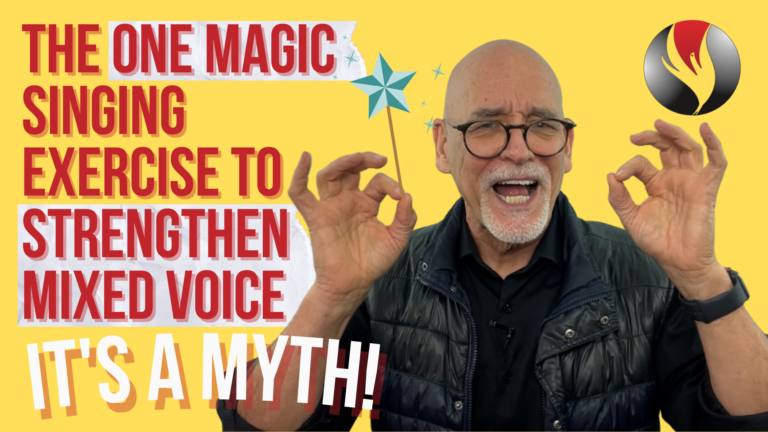Judging Your Own Singing Voice is dangerous. Find out WHY judging your own singing voice is dangerous and how to Judge if you must!
Judging Your Own Singing Voice
is dangerous and here’s why:
#1. You can’t hear from inside your head what people can hear outside your head. Even cupping our ears or holding papers up to your ears will be a distortion. You’re always going to be too hard on yourself.
#2. You are wasting your time. A majority of people won’t like your voice, your genre or your style. The best singers in the world only have a small number of the population that really like their voices. Lady Ga Ga has 71.6 million followers. But that’s only 1% of the population of the earth. The vast majority don’t like her voice, genre or style.
#3. Your voice is a work in progress. If your voice was a student in school, when do you pass judgement? When you are in 1st grade? 6th grade? 10th grade? Graduated from college? When you’ve finished your Phd? 20 years into your career? At what point is your learning and improvement over? When is it too late to get better?
#4. You are judging things that are always changing. How can you judge tone? Range? Pitch? Performance? Sales? Audience Size? Songs you sing? Aren’t these things changing all the time? Aren’t these things like Selfies? The way it looks now changes in seconds, minutes, hours or days?
#5. Most of us aren’t qualified to pass judgment on our voices. We don’t know enough about it. Besides we are too subjective. Meaning, what we don’t like in our voices, others do like. What we like in our voices, others don’t like. There is no vocal gold standard, no voice that 100% of all earthlings agree on.
Judging Your Own Singing Voice Objectively (If You Must)

If you insist on judging your voice, you can try to be objective, and measure things about your voice that can be measured…or at least objectively evaluated. Judge yourself kindly and with the goal of knowing how you can improve, not whether you should quit or not.
#1. Does your singing voice sound like you, like your speaking voice?
#2. Can people understand what you are saying?
#3. Can you sing from low notes to high notes without tension, staining, cracking, breaking or breathiness?
#4. Do you have a workable singing technique that enables you to focus on the song, it’s story and emotions. Or are you so worried about hitting notes that you sing distracted?
#5. Do you have a technique that promotes a healthy voice? Or is your voice sore, hoarse, or slow to recover after a performance?
#6. Do you have confidence singing for audiences?
#7. Are you able to stay on pitch?
#8. Can you sustain high, medium and low notes with vibrato?
#9. Can you sing from soft to loud or loud to soft without cracking or breaking into falsetto?
#10. Do you love to sing and perform?
These questions will help you judge your voice in a way that you can do something about it. Most can be answered with a simple yes or no and you’ll have a good idea where you need to work…which is the point of judging yourself, right?
If you liked this video please give it a thumbs up, subscribe and share it with a friend. Do you love to sing and perform? Let me know in the comments section below!
A simple way to evaluate your voice is to discover your vocal type. Your vocal type will give you specific things to work on and provide exercises to improve the area of your voice where you are weakest.
Go to PowerToSing.com and take the vocal test, which I call the PowerTest. Take the quiz and discover your vocal type. Then go to the Knowledge Center and watch the videos about your vocal type. Download the free exercises and start practicing them. They’ll help you eliminate your vocal weaknesses.
I’m Chuck Gilmore with Power To Sing. You can sing higher with beauty, confidence and power.
I’ll see you inside the next video.









Responses
Sure, watch this: https://youtu.be/mxQ73lUZ2Fs
Your very right about it
It’s really Me….I also can’t understand why I Dislike and Discriminating my voice….and I also have a Question about what we call in Tagalog “Napipiyok’ because I’m Napipiyok’ always when I’m singing can you help me about it…. please
Hi Billy: Sounds like you may want to expand your experience and add another choir if time permits. Or worst case, change choirs. I’m glad the videos are helpful. Thanks Billy.
Thanks Chuck for your help, videos, and encouragement. They’ve really gave me a new perspective on my singing voice. I’ve always spoken low and sang high. I have a pretty good mix voice and can sing just about any range up or down. I sing with a gosple group and at times I feel like they try to confine me to my chest voice and don’t the freedom to use my entire voice. When I do I’m criticized as singing falsetto. It upsets me because my notes are strong, I’m not straining or out of breath, and some say that I sound beautiful.
We all do it especially at first. Through the years you’ll be less critical and more forgiving toward yourself. Just keep after it and enjoy the process of improving and refining.
Thanks Victor!
Excellent advice, Chuck, excellent.
Thank you…it WAS helpful to hear that I cannot judge the sound of my voice. I constantly feels like it doesn’t sound right or I’m just off…but others say no. I am my worse critic and will stop criticizing my voice